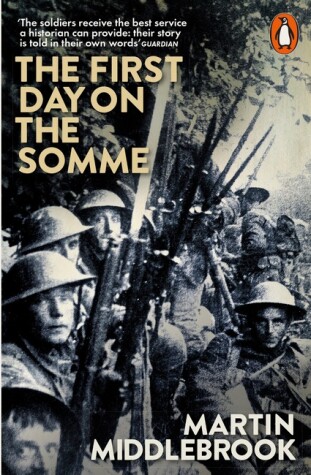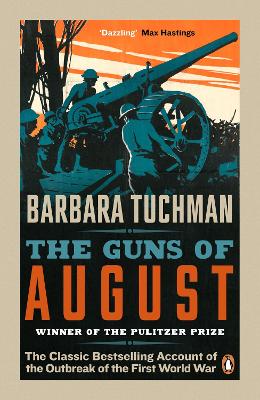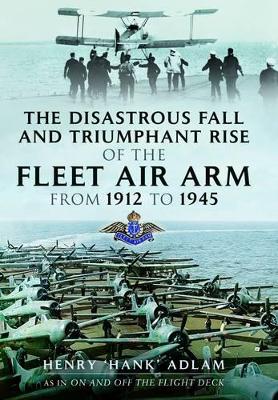This study sheds new light on the development of British public opinion in the build up to the Second World War.
Croydon Tramlink is a new history about the network linking Wimbledon with Croydon in South London. This is the first full history of this fascinating tramway, which is about to celebrate its twentieth anniversary of opening. The book looks at the political, economic and social aspects of the network, as well as the mechanical history of the system. The tramway has been an important aspect in rejuvenating the Croydon area and improving transport links in an area lacking underground lines.
El 30 de septiembre de 1938, el primer ministro británico, Neville Chamberlain, recién llegado de Múnich, anunciaba que su reunión con Hitler había evitado la mayor crisis de la época contemporánea y que la «paz para nuestra era» estaba asegurada. Menos de un año después, Alemania invadía Polonia y estallaba la Segunda Guerra Mundial Apaciguar a Hitler es el brillante relato del desastroso periodo de inacción política que permitió la consolidación del régimen nazi. Narrado de forma trepidante...
NOBODY IN PARTICULAR is the hand-on-heart, honest, charming and occasionally tear-inducingly tragic, often laugh out loud funny story of what it was like to grow up in Liverpool in the 1950s and '60s as the youngest child in a large and somewhat eccentric Anglo-Irish family: Cherry's father would while away the hours playing his guitar in the outside loo until the pubs opened while her mother seemed to be either menopausal or depressed or both, and devoted most of her energies into saving for a...
When this book begins, in the reign of Edward VII, Great Britain commands the mightiest empire the world has ever seen. By the time it ends, with the Coronation of Elizabeth II, Britain has emerged victorious from a world war, but ruined as a world power. How did Britain's power and influence decline? This is one of the questions which A. N. Wilson seeks to answer in his masterly follow-up to The Victorians. As in the previous book, however, he has painted the portrait of an age. The extraordina...
THE TRUE STORY OF THE 41,000 BRITISH SOLDIERS WHO WERE LEFT BEHIND AFTER THE EVACUATION OF DUNKIRK, MAY 1940'Meticulously researched, very well written and deeply moving' Andrew Roberts'Few readers will be unmoved by Sean Longden's account' Dominic SandbrookAt 2am on the morning of the 3rd of June 1940, General Harold Alexander searched along the quayside, holding onto his megaphone and called "Is anyone there? Is anyone there?" before turning his boat back towards England. Tradition tells us th...
New edition of this bestselling title, a colourful history of Tottenham Hotspur that gets to the heart and soul of the famous London football club. Packed with wonderful stories from the formation of the club to the present day, and the memories of legendary players, managers, supporters and other key figures, The Biography of Tottenham Hotspur brings the rich history of Spurs to life. Lifelong Spurs fan, Julie Welch, calls this book her 'loveletter' to the club takes fellow supporters on a bea...
THE DIARIES OF A MILITARY WIFE DURING THE SECOND WORLD WARIn 1935, Evelyn Shillington started a diary, little knowing the years of turmoil it would cover, and how insightful her experiences as an army wife would be to the following generations.Eve joined her beloved husband, Captain Rex Shillington, on his postings, giving her a unique view into army life. Through the abdication crisis, to the turbulent years of the WWII and ending in war-ravaged Italy, Eve documented it all with an inimitable s...
The First Day on the Somme (Penguin Classic Military History S.)
by Martin Middlebrook
The soldiers receive the best service a historian can provide: their story is told in their own words - Guardian'For some reason nothing seemed to happen to us at first; we strolled along as though walking in a park. Then, suddenly, we were in the midst of a storm of machine-gun bullets and I saw men beginning to twirl round and fall in all kinds of curious ways' On 1 July 1916, a continous line of British soldiers climbed out from the trenches of the Somme into No Man's Land and began to walk t...
Barbara Tuchman's The Guns of August is a spellbinding history of the fateful first month when Britain went to war.War pressed against every frontier. Suddenly dismayed, governments struggled and twisted to fend it off. It was no use . . .Barbara Tuchman's universally acclaimed, Pulitzer prize-winning account of how the first thirty days of battle determined the course of the First World War is to this day revered as the classic account of the conflict's opening. From the precipitous plunge into...
The humble allotment has a surprisingly turbulent history. Initially the right to an allotment was proposed as a charitable means by which the poor could grow their own food and stave off starvation, but it quickly entered political and social debate. During the World Wars the allotment became the focal point on the home front, as families took part in the Dig for Victory campaigns. The post-war years saw a decline in the popularity of the allotment as the supermarket took over from home-grown p...
Disastrous Fall and Triumphant Rise of the Fleet Air Arm from 1912 to 1945
by Henry Amyas Adlam
In this riveting critique of the Fleet Air Arm's policy across two world wars, former FAA Fighter Pilot Henry Adlam charts the course of its history from 1912 to 1945, logging the various milestones, mistakes and successes that characterised the service history of the Fleet Air Arm. Offering criticism on the service hierarchies that made up the Fleet, backed up by his having served in six Carriers and flown from them in all five theatres of sea warfare during five years of the Second World War,...
A remarkable series of over 200 eye-witness accounts taken from diaries, letters, speeches, interviews and memoirs of those who were there: pilots, sailors, generals, infantrymen, war correspondents and leaders. These include Spitfire pilot Richard Hillary's account of bailing out of his plane in the Battle of Britain; a German sailor's view of HMS Royal Oak being torpedoed at Scapa Flow; insights into Rommel's ailing health from a lieutenant in the Afrika Korps; famous war correspondent Ernie P...
* 'Niccolò Machiavelli is misunderstood,' argues Jonathan Powell in his twenty-first-century reworking of the Italian philosopher's influential masterpiece, The Prince. Taking the lessons Machiavelli derived from his experience as an official in fifteenth-century Florence, Powell shows how these lessons can still apply today. Illustrating each of Machiavelli's maxims with a description of events that occurred during Tony Blair's time as Prime Minister, The New Machiavelli is designed to be The P...
The Royal Air Force had placed a great deal of faith in its force of bombers, Bomber Command, in the event of a future war. The belief in the ability of formations of bombers flying in daylight and unescorted, protecting themselves from enemy fighter attack, informed early tactics but led to bloody losses. Hampered by government restrictions on targets, by late 1941 Bomber Command was in crisis. As a result, and coupled the growing dire war situation, a new and forceful commander, Sir Arthur Ha...
The authoritative and fascinating history of the rise and fall of the state-owned British Rail'Wolmar's book is impeccably organized and makes a fast, enjoyable read' THE TIMES Literary Supplement________You think you know British Rail. But you don't know the whole story.From its creation after the Second World War, through its fifty-year lifetime, British Rail was an innovative powerhouse that transformed our transport system. Uniting disparate lines into a highly competent organisation - heral...
The Beveridge Report (Routledge Studies in Modern British History)
by Derek Fraser
This book provides the definitive account of the making of the 1942 Beveridge Report and its influence on wartime and post-war social policy. The Beveridge Report: Blueprint for the Welfare State aims to offer a definitive analysis of the famous document, so influential in the founding of the National Health Service and other bodies and which still resonates in current debates about "getting back to Beveridge" and a "Beveridge for the 21st Century". It is based on extensive research into the p...
In the years leading up to the First World War, the United Kingdom was subjected to a ferocious campaign of bombing and arson. Those conducting this terrorist offensive were members of the Women's Social and Political Union; better known as the suffragettes. The targets for their attacks ranged from St Paul's Cathedral and the Bank of England in London to theatres and churches in Ireland. The violence, which included several attempted assassinations, culminated in June 1914 with an explosion in...
One of Churchill's Own: The Memoirs of Battle of Britain Ace John Greenwood
by David Greenwood
John Greenwood was born in East London on 3 April 1921. At the age of eighteen, in February 1939, he forged his father's signature and joined the RAF on a short service commission. Seven months later, Britain declared war on Germany and 253 Squadron was formed. In May 1940, John and his fellow pilots were sent to France with 24 hours' notice where he shot down a Dornier 17 and a Messerschmitt 109 the next day, before returning to England with only four pilots and three aircraft left. 253 Squad...
Religious guilds or fraternities proliferated throughout England until their dissolution in the late 1540s, yet remarkably few of their records have survived. Amongst the survivals are the last twenty-one years of the accounts of the Luton Guild of the Holy Trinity, hitherto unpublished in full. The accounts record several hundred transactions each year, including rents for the guild's properties, and expenditure on wages to priests and clerks and dirges sung for deceased members of the guild. P...























